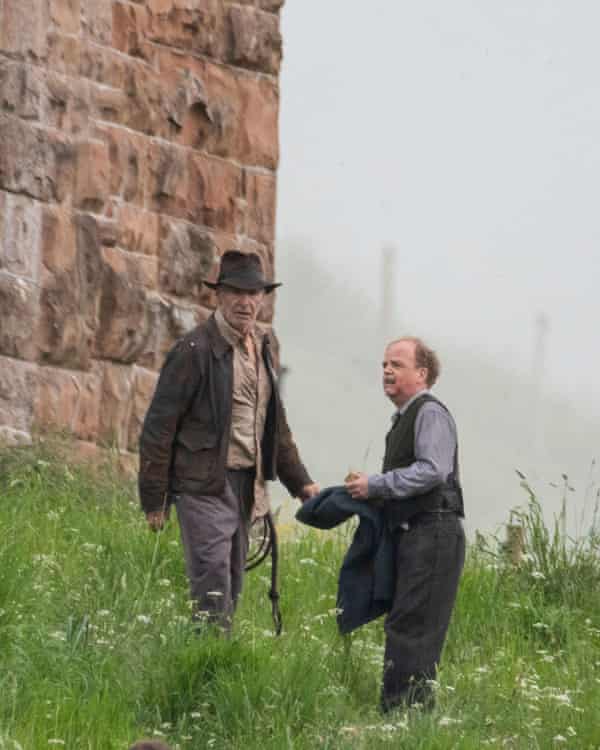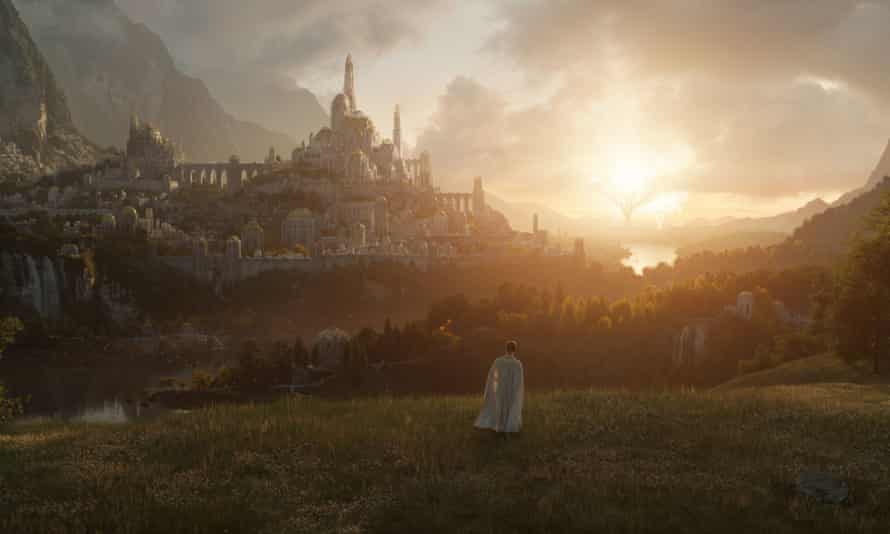Made in Dagenham … but now it’s movies rolling off the production line
British film-making is booming, and the former Ford factory in east London is in the thick of the action

Nearly two decades ago, the last Ford Fiesta rolled off the production line in Dagenham, east London, marking the end of more than 70 years of car production.
It was a blow for a skilled workforce that helped produce 11m cars but the town is now centre-stage of another booming production line: Tinseltown UK.
A record £5.9bn was spent on film and big-budget television productions in the UK this year, according to figures published by the British Film Institute – almost double the amount spent five years ago.
Film industry experts say there is an “insatiable” demand for content from online media giants such as Netflix and Amazon – and the industrial hinterland of Dagenham is among the places reaping the benefits.
On a former factory site covering 22 acres in the town’s Yew Tree Avenue, a £300m complex called Eastbrook Studios is under construction, which will be London’s biggest film and TV production campus. Two nearby warehouses at The Wharf in Barking are also being converted into studios.
Black Widow, the Marvel Studios blockbuster starring Scarlett Johansson, was partly made in Dagenham. Film bosses are phoning the council to earmark studios for future production.
“We’ve had Disney, Netflix and Amazon asking for space,” said Darren Rodwell, leader of Barking and Dagenham council, which has promoted the town as a global centre of film production. “It’s a fantastic opportunity for young people in the borough. Once we were known for making Fords and now we are known for making films.”
It is not just Dagenham that is benefiting from the production boom. New studios are opening or being expanded around the country. It was announced last week that Netflix is to double the size of its base at Shepperton Studios, owned by the Pinewood Group.
Bray Film Studios in Berkshire has also been given the go-ahead for an expansion with nine new stages. The studios were previously the base of the Hammer horror films and the location for the Christopher Lee Dracula movies and The Curse of Frankenstein.

The owner of Hollywood’s Sunset Studios, producers of La La Land and Zoolander, is backing a £700m studio complex in Broxbourne in Hertfordshire. It will form part of the home counties film belt which includes Warner Bros Studios at Leavesden in Hertfordshire, Sky Studios Elstree and Pinewood Studios in Buckinghamshire.
The north of England and other regions are also benefiting. Two studios were opened last month in Liverpool, which has already provided a backdrop for filming for the Netflix series The Irregulars, set in Victorian times, and Doctor Who.
Harriet Finney, deputy chief executive of the British Film Institute, said: “We are a nation of innovators and storytellers, and people like making films here. We have the infrastructure, rich skills and fantastic locations.” She said the additional investment was “fantastic”, but created additional demands on the supply of skilled workers. The BFI is undertaking a skills review on behalf of the government and is also examining the economic pressures on the independent sector to ensure the UK properly benefits from the billions of pounds of film and television revenues.
Britain is now one of the most sought after locations in the world for film and TV productions. The industry has rapidly recovered from Covid shutdowns, thanks in part to a government-backed £500m scheme for UK productions struggling to get insurance for Covid-related costs.
Titles shooting in the UK this year include a new Indiana Jones film at Pinewood Studios; the Disney series Willow in Wales; and Mission: Impossible 7 at Warner Bros studios at Leavesden, and on location in Derbyshire and Yorkshire.
Amazon announced in the summer it is moving its Lord of the Rings prequel series from New Zealand to the UK. It is set thousands of years before the events in JRR Tolkien’s classic.
Adrian Wootton, chief executive of Film London and the British Film Commission, said that Britain’s locations from “medieval castles to skyscrapers” were hard to beat. “It’s another golden age for UK film and TV,” he said. “The benefits are being felt right across our UK nations and regions, with existing production hubs growing to accommodate the demand, and new stage space developing in all four nations and regions.”
The film and television boom does have its downsides, according to film veteran Victor Glynn, co-producer of the BBC comedy Staged starring David Tennant and Michael Sheen.

“Crews are demanding – and getting from the major companies – salaries far in excess of the norm,” he said. “For the genuine independent companies, it is a nightmare as crews are literally abandoning jobs they have committed to to take the bigger wages.
“The net effect has been a rapid increase in the cost of independent film production.”
One of the key factors driving film and television investment into the UK are the generous tax reliefs under which film and big-budget television productions can claim a payable cash rebate of up to 25% on UK qualifying expenditure. The tax relief was worth nearly £1bn to the industry in the year to 31 March 2021. The bulk of the profits from the blockbusters and hit television shows are banked overseas.
George Turner, director of the investigative thinktank TaxWatch, which has investigated the tax reliefs claimed by the film industry, said there now needed to be a review of the taxpayer handouts to major film companies. “The film tax credit system is designed so that the more you spend, the more subsidy you get, with no limit,” he said.
“It is highly questionable whether paying out vast amounts of subsidy to large multinational film studios is the best way of providing support to the UK film industry.”
Council bosses will, however, be keen for the film and television investments to continue. Barking and Dagenham’s Rodwell said: “Ford dominated the way we did business for 70 or 80 years. We are now finding the partners and institutions for future decades.”